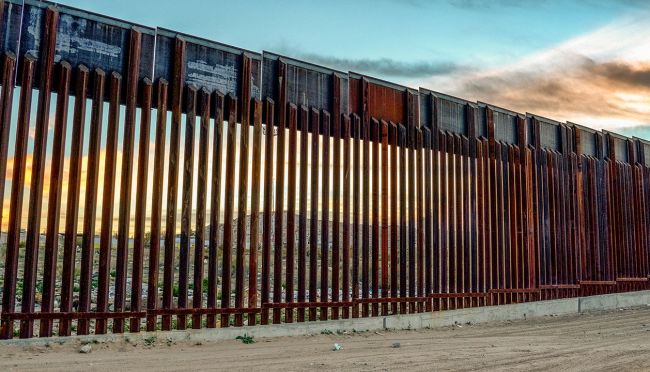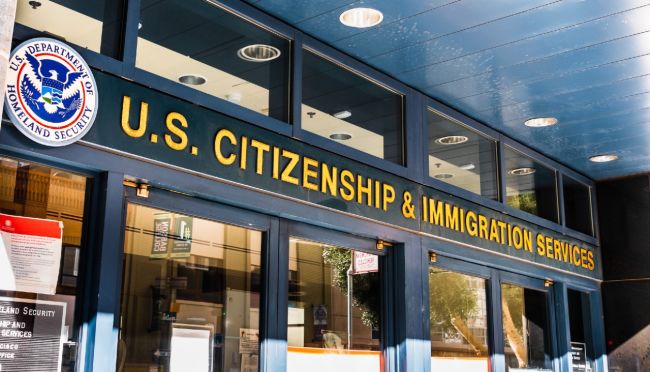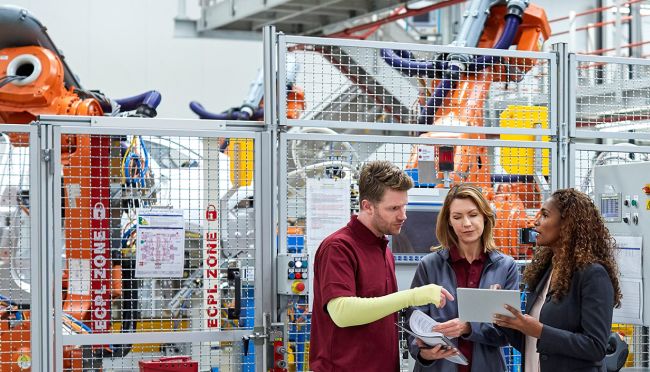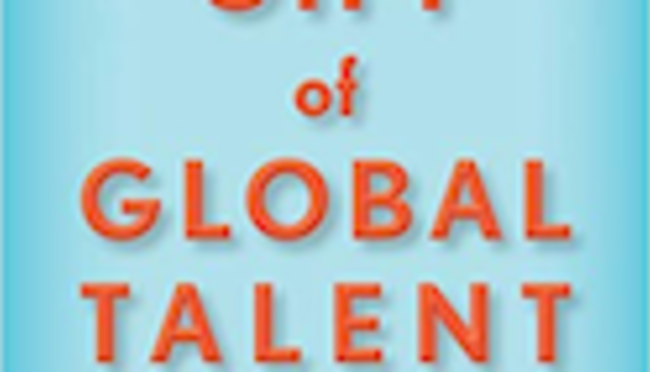Immigration →
→

- 08 May 2023
- Research & Ideas
How Trump’s Anti-Immigrant Rhetoric Crushed Crowdfunding for Minority Entrepreneurs
When public anxiety about immigration surges, Black, Asian, and Hispanic inventors have a harder time raising funds for new ideas on Kickstarter, says research by William Kerr. What can platforms do to confront bias in entrepreneurial finance?

- 14 Feb 2023
- HBS Case
Is Sweden Still 'Sweden'? A Liberal Utopia Grapples with an Identity Crisis
Changing political views and economic forces have threatened Sweden's image of liberal stability. Is it the end of the Scandinavian business-welfare model as we know it? In a case study, Debora Spar examines recent shifts in Sweden and what they mean for the country's future.

- 01 Nov 2022
- What Do You Think?
Why Aren’t Business Leaders More Vocal About Immigration Policy?
Immigration fuels the American economy, feeds the talent pool, and can directly affect company performance. And yet few executives and entrepreneurs have waded into the policy dialogue, says James Heskett. Open for comment; 0 Comments.

- 30 Mar 2021
- Working Paper Summaries
Whose Job Is It Anyway? Co-Ethnic Hiring in New US Ventures
The impact of immigration has been particularly sharp in entrepreneurship, yet there is remarkably little evidence about how immigration in the workplace connects to the creation and scaling of new firms. The economic consequences of greater workplace and entrepreneurial diversity deserve closer attention.

- 11 Jan 2021
- Working Paper Summaries
The Political Effects of Immigration: Culture or Economics?
This paper reviews and explains the growing literature focused on the political effects of immigration, and highlights fruitful avenues for future research. When compared to potential labor market competition and other economic forces, broadly defined cultural factors have a stronger political and social impact.

- 03 Nov 2020
- Working Paper Summaries
An Executive Order Worth $100 Billion: The Impact of an Immigration Ban’s Announcement on Fortune 500 Firms’ Valuation
President Trump’s executive order restricting entry of temporary foreign workers to the United States negatively affected the valuation of 471 publicly traded Fortune 500 firms by an estimated $100 billion. Closed for comment; 0 Comments.

- 15 Jun 2020
- Working Paper Summaries
The Seeds of Ideology: Historical Immigration and Political Preferences in the United States
Researchers test the relationship between historical immigration to the United States and political ideology today.

- 11 May 2020
- Op-Ed
Immigration Policies Threaten American Competitiveness
At this time of crisis, America risks signaling to global innovators and entrepreneurs that they have no future here, says William R. Kerr. Open for comment; 0 Comments.

- 21 Apr 2020
- Working Paper Summaries
Changing In-group Boundaries: The Role of New Immigrant Waves in the US
How do new immigrants affect natives’ views of other minority groups? This work studies the evolution of group boundaries in the United States and indicates that whites living in states receiving more Mexican immigrants recategorize blacks as in-group members, because of the inflow of a new, “affectively” more distant group.

- 06 Apr 2020
- Research & Ideas
Where Do Workers Go When the Robots Arrive?
Marco Tabellini and colleagues investigate where workers go after losing their jobs to automation and Chinese imports. Open for comment; 0 Comments.

- 17 Feb 2020
- Working Paper Summaries
The Impact of Technology and Trade on Migration: Evidence from the US
Labor mobility can re-equilibrate local labor markets after an economic shock. Both robot adoption and Chinese import competition between 1990 and 2015 caused large declines in manufacturing employment across US local labor markets (commuting zones, CZs). However, only robots were associated with a decline in CZ population, which resulted from reduced in-migration rather than by increased out-migration.
- 01 Jan 2020
- What Do You Think?
Why Not Open America's Doors to All the World’s Talent?
SUMMING UP: The H-1B visa program is exploited by some employers to replace high-paid talent, but that doesn't mean foreign workers should be shut out of working in the United States, according to many of James Heskett's readers. Open for comment; 0 Comments.

- 19 Jun 2019
- Working Paper Summaries
Migrant Inventors and the Technological Advantage of Nations
This study provides robust econometric evidence for how immigrant inventors shape the innovation dynamics of their receiving countries. Countries receiving inventors from other nations that specialize in patenting particular technologies are more likely to have a significant increase in patent applications of the same technology.

- 08 Jun 2019
- Working Paper Summaries
The Gift of Global Talent: Innovation Policy and the Economy
High-skilled workers in today’s knowledge-based economy are arguably the most important resource to the success of businesses, regions, and industries. This chapter pulls from Kerr’s book The Gift of Global Talent to examine the migration dynamics of high-skilled individuals. He argues that improving our knowledge of high-skilled migration can lead to better policy decisions.

- 07 Feb 2019
- Working Paper Summaries
Immigrant Networking and Collaboration: Survey Evidence from CIC
This study compares United States-born and immigrant entrepreneurs’ use of networking opportunities provided by CIC, the former Cambridge Innovation Center. Immigrants clearly take more advantage of networking opportunities at CIC, especially around the exchange of advice. It remains to be seen whether this generates long-term performance advantages for immigrants.

- 01 Nov 2018
- Working Paper Summaries
Forecasting Airport Transfer Passenger Flow Using Real-Time Data and Machine Learning
Passengers arriving at international hubs often endure delays, especially at immigration and security. This study of London’s Heathrow Airport develops a system to provide real-time information about transfer passengers’ journeys through the airport to better serve passengers, airlines, and their employees. It shows how advanced machine learning could be accessible to managers.

- 01 Oct 2018
- Book
Is the US Losing its Ability to Attract Highly Skilled Migrant Workers?
As debates sharpen on the benefits and drawbacks of migrant labor, William R. Kerr's new book explores why global talent flows matter to national economic development and security. Book excerpt and author interview. Open for comment; 0 Comments.

- 19 Sep 2018
- Working Paper Summaries
From Immigrants to Americans: Race and Assimilation During the Great Migration
The Great Migration of African Americans and the mass migration of Europeans both contributed to forming the modern American racial and ethnic landscape. This analysis finds that native whites more readily accepted European immigrants as African Americans arrived in the US North during the first Great Migration, facilitating the assimilation of European immigrants in northern urban centers.

- 07 Aug 2018
- Working Paper Summaries
Gifts of the Immigrants, Woes of the Natives: Lessons from the Age of Mass Migration
Investigating the economic and political effects of immigration across US cities between 1910 and 1930, this paper finds that political opposition to immigration can arise even when immigrants bring widespread economic benefits. The paper provides evidence that cultural differences between immigrants and natives were responsible, at least in part, for natives’ anti-immigration reactions.

Why Progress on Immigration Might Soften Labor Pains
Long-term labor shortages continue to stoke debates about immigration policy in the United States. We asked Harvard Business School faculty members to discuss what's at stake for companies facing talent needs, and the potential scenarios on the horizon.